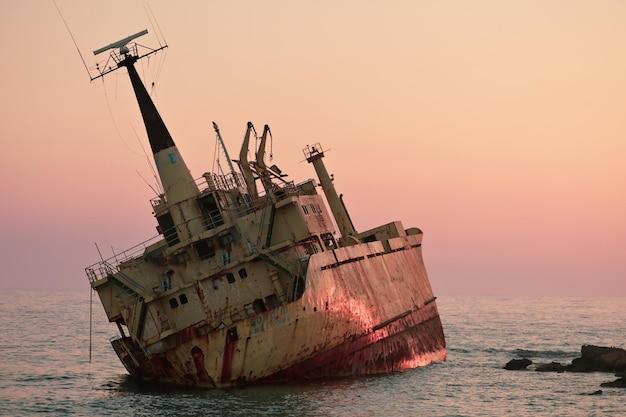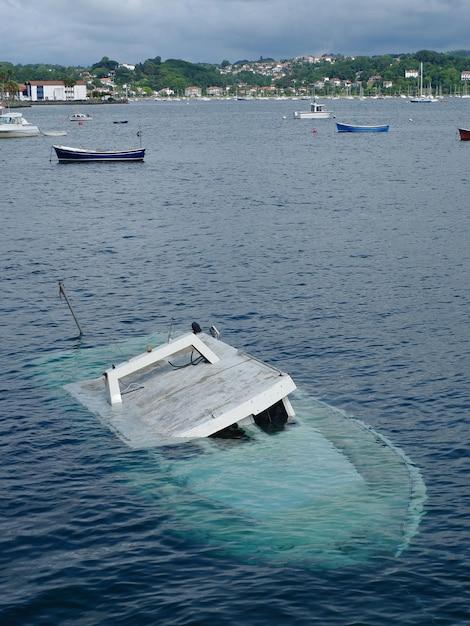If you own a boat, you probably understand the joy and freedom it brings. But accidents happen, and one of the most dreaded scenarios for any boat owner is the sinking of their beloved vessel. The thought of seeing your boat submerged in water can be particularly distressing. But the question arises: does boat insurance cover sinking?
In this blog post, we will delve into the topic of boat insurance and sinking. We’ll explore commonly asked questions, such as whether a boat is considered totaled if it sinks, what boat insurance does not cover, and whether fines are imposed if your boat sinks. Additionally, we’ll provide some guidance on what to do if your boat sinks in a lake.
So, let’s dive in and unravel the mysteries of boat insurance coverage when it comes to sinking. Stay tuned to find out if your boat is protected in this unfortunate event.
Does Boat Insurance Cover Sinking
Understanding the Depth of Coverage
When it comes to boat insurance, the question of whether sinking is covered is an important one. After all, no boater wants to imagine their beloved vessel going down like the Titanic. So, let’s dive into the depths of this topic and explore boat insurance coverage when it comes to sinking.
The Sink or Swim Scenario
If you’re the kind of person who starts panicking at the thought of your boat sinking, I’ve got good news for you: most boat insurance policies do cover sinking. Phew! This means that if your boat decides to take an unexpected plunge to the bottom of the sea, you can have some peace of mind knowing that your insurance has got your back.
What’s Covered
Now, before you start plotting your own nautical disaster film, it’s important to understand what exactly is covered when your boat takes a plunge. Most boat insurance policies cover sudden and accidental sinking, as well as damage caused by sinking. So, if your boat takes an unscheduled tour of the underwater world, your insurance should help cover the costs of repairs or even a replacement if necessary.
Take Note: Wear and Tear
While boat insurance typically covers sinking, it’s important to note that wear and tear is not usually included. So, if your boat decides to take a dive due to old age, neglect, or lack of proper maintenance, you might be out of luck. Insurance companies generally expect boat owners to take good care of their vessels, so keep that in mind if you want to avoid paying for repairs out of your own pocket.
Keep Your Head Above Water
Remember, the specifics of boat insurance policies can vary, so it’s always best to review your own policy to understand exactly what is covered. Additionally, it’s worth considering additional coverage options if you regularly venture into riskier waters. Talking to your insurance provider can help you find the best policy for your needs and give you a solid sense of security whenever you’re out on the open water.
Stay Afloat with Boat Insurance
So, in summary, most boat insurance policies cover sinking, but they may not cover wear and tear. It’s always a good idea to carefully read your policy to fully understand your coverage. Whether you’re sailing the high seas or exploring calm lakes, having boat insurance can keep your worries from sinking your spirit. Happy boating, my friends!
My Boat Sank at the Dock
So, you’re having a peaceful day at the marina, about to set sail on your beloved boat. But lo and behold, disaster strikes! Your boat decides to take an unplanned plunge into the depths of the water, right there at the dock. Talk about a highly unexpected turn of events! Don’t panic just yet. Let’s delve into whether boat insurance covers such a sinking surprise.
Does Boat Insurance Cover Sinking
Picture this: you’ve diligently insured your boat, expecting it to come to the rescue in times of need. But now that your boat is sulking beneath the surface, you might be wondering if your boat insurance policy has got your back. Well, the good news is that most boat insurance policies do cover sinking incidents, including the unfortunate dock sinking scenario.
The Details Matter
Of course, insurance policies vary from provider to provider, and the terms and conditions should always be thoroughly examined. Generally, boat insurance covers accidental sinking caused by unexpected, unanticipated events. So, if your boat decides to test the strength of gravity while peacefully tied up at the dock, you might be in luck!
The Culprit Matters
While insurance policies typically cover sinking, it’s essential to remember that the cause of the sinking might impact your coverage. If the sinking resulted from a mechanical failure or some form of negligence, the scenario might change. Insurance providers usually expect boat owners to properly maintain their vessel, so it’s essential to keep up with upkeep.
Coverage Limits and Deductibles
When it comes to boat insurance, it’s important to understand the terms of your policy, including coverage limits and deductibles. These factors can determine the extent to which your policy will cover the sinking event. Some policies may cover the entire cost, while others may have limitations or require a deductible payment. Familiarize yourself with these details to avoid any surprises.
Next Steps
If your boat encounters an unexpected, unsolicited swim at the dock, it’s crucial to act swiftly. Firstly, ensure everyone’s safety and secure your boat to prevent further damage. Depending on the severity of the sinking, you might need to contact a professional salvage company to assist in the recovery process. Remember to document the incident with photographs or videos, as these can be helpful when filing a claim with your insurance provider.
In the unfortunate event of your boat sinking at the dock, there’s a good chance that your boat insurance will come to the rescue. Still, it’s important to carefully review your policy to understand the coverage limits and any conditions that may apply. While a sunken boat might seem like an insurmountable nightmare, having appropriate insurance coverage can make all the difference in restoring both your vessel and your peace of mind.
Is a Boat Totaled if it Sinks
So, your beloved boat has taken an unexpected plunge into the depths of the ocean, leaving you in a state of distress. You may be wondering, “Is a boat considered totaled if it sinks?” Well, fear not, my fellow seafarer, for I am here to unravel this mysterious maritime conundrum.
Understanding the Dreaded “Total Loss”
When it comes to insurance, the term “totaled” is often associated with cars, not boats. However, in the context of boat insurance, a similar concept exists. In the event of your boat sinking, insurers evaluate the extent of the damage to determine if it is a “total loss” or simply salvageable.
The Devil is in the Details
Now, let’s dive into the nitty-gritty. Insurance policies vary, so it’s essential to scrutinize the fine print of your specific coverage. In general, most boat insurance policies cover a range of perils, and sinking is typically included. However, don’t assume you’re automatically covered for all scenarios. Some insurers may have specific exclusions or limitations in their policies, so double-check those clauses!
Salvageable or Sleeps with the Fishes
When your boat sinks, insurers assess the damage based on its current state. If the cost of repairs exceeds a certain percentage of the vessel’s insured value, your boat may be deemed a total loss. This percentage, known as the “threshold,” varies among insurers, typically ranging from 50% to 75%. So, if your floating palace is deemed a total loss, the insurer will compensate you for the insured value of the boat, minus any deductibles.
But Wait, There’s More!
However, if the damage is not catastrophic and your boat is salvageable, the insurer will cover the necessary repairs. Keep in mind that depreciation may come into play here. If your boat has been around the block (or the buoy), the insurer might factor in depreciation, reducing the amount they will pay for repairs.
Smooth Sailing Ahead
To ensure you’re adequately protected, it’s crucial to have the appropriate boat insurance coverage that includes sinking as a covered peril. Carefully read the terms and conditions of your policy and consider consulting with a knowledgeable insurance agent who can navigate the perilous waters of insurance jargon with you.
In summary, sinking is typically covered by boat insurance policies, but you must carefully review your specific coverage. Remember, a sinking boat is not necessarily totaled; it depends on the extent of the damage and your policy’s terms. So, before you set sail on your aquatic adventures, make sure you’re armed with the proper insurance coverage to keep you afloat, even in the face of a sinking ship.
What Does Boat Insurance Not Cover
When it comes to boat insurance, it’s crucial to understand what’s covered and what’s not. While boat insurance provides essential protection for your vessel, there are certain scenarios and items that it may not cover. Here are some key things to keep in mind:
Normal Wear and Tear
Boat insurance typically won’t cover the costs associated with normal wear and tear. Just like any other vehicle, boats are subject to regular maintenance and repair. So, if your boat requires routine maintenance or if certain parts need replacing due to natural wear and tear, it’s unlikely that your insurance policy will foot the bill.
Manufacturer Defects
While boat insurance covers accidental damage, it generally excludes any issues related to manufacturer defects. So, if you discover a defect or flaw in your boat that leads to damage or malfunction, your insurance provider may not cover the repair costs. In such cases, it’s best to contact the manufacturer or consult your warranty coverage, if applicable.
Personal Belongings
Although boat insurance is designed to protect your vessel, it may not extend to your personal belongings. This means that if you have expensive fishing equipment, electronics, or other valuables on board that are lost or damaged, your insurance policy might not cover their replacement or repair. To safeguard these items, you may need to consider additional coverage or a separate personal property insurance policy.
Intentional Damage or Negligence
Boat insurance is intended to protect against unforeseen events, accidents, and acts of nature. However, it typically does not cover intentional damage or neglect. If you intentionally damage your boat or neglect its maintenance, resulting in a loss or damage, your insurance provider may deny your claim. So, it’s important to take proper care of your vessel and operate it responsibly to avoid such situations.
Racing and Underwater Activities
Engaging in high-risk activities such as boat racing or scuba diving might not be covered by your boat insurance. These activities are considered more hazardous, increasing the likelihood of accidents or damages. If you plan on participating in such activities, make sure to review your policy carefully or consider additional coverage to protect yourself adequately.
While boat insurance is an essential safeguard for your vessel, it’s important to be aware of its limitations. Normal wear and tear, manufacturer defects, personal belongings, intentional damage, and certain activities may not be covered. By understanding what boat insurance does not cover, you can make informed decisions, take necessary precautions, and explore additional coverage options to protect yourself and your precious boat.
The Consequences of a Sinking Boat
Cleared for Sinking: Will You Be Fined?
When it comes to boat sinking mishaps, one question that inevitably arises is, “Will I face a fine if my boat goes under?” Well, let’s dive into the depths of this issue and find out what the maritime law has to say.
Understanding the Legal Waters
It’s essential to grasp the legal implications of a sunken vessel. According to maritime law, fines may be imposed in cases where a boat sinking results from negligence or a failure to comply with safety regulations. While the specifics vary depending on location and circumstances, it’s clear that there’s a responsibility bestowed upon boat owners to ensure their vessels are seaworthy.
The Negligence Factor
If your boat sinks due to negligence, you may find yourself facing not just the frustration of a waterlogged vessel but also the imposition of fines. Negligence in this context refers to instances where a boat owner fails to adequately maintain or operate their craft, leading to its demise.
Compliance with Safety Regulations
Following safety regulations is crucial for any boat owner. Failure to comply with these standards can lead to a variety of consequences, including fines. While the specifics may differ depending on local laws and regulations, it’s always prudent to adhere to established safety practices to avoid finding yourself in troubled waters.
Salvaging Your Finances
Now, let’s set aside the potential fines and turn our focus to mitigating the financial impact of a sunken boat. This is where boat insurance comes into play.
The Lifeboat Called Boat Insurance
Boat insurance is designed to provide coverage for a range of potential risks, including sinking. However, it’s important to review your policy to ensure you have the appropriate coverage. Different insurance policies offer different levels of protection, and some may have specific exclusions or limitations when it comes to sinking incidents.
Flourishing or Floundering
Whether you’ll be fined in the case of a sunken boat depends on a variety of factors, including negligence and compliance with safety regulations. While it’s crucial to avoid finding yourself in deep legal waters, it’s equally important to ensure you have comprehensive boat insurance that covers sinking incidents. So, before embarking on any aquatic adventures, make sure you’re well-prepared for all contingencies.
What to Do If Your Boat Sinks in the Lake
If you find yourself in the unfortunate situation of your beloved boat sinking in the lake, it’s important to know how to handle the aftermath. While it’s a distressing experience, staying calm and taking the necessary steps can help minimize damage and ensure your safety. Here’s a helpful guide on what to do if your boat takes an unexpected dive:
Assess the Situation
As soon as you realize your boat is sinking, the first step is to assess the situation. Stay calm and try to determine the cause of the sinking. Whether it’s a leak, collision, or any other issue, understanding the source is crucial. This information will also be important when dealing with insurance claims later on.
Ensure Personal Safety
Your safety should be the top priority in any emergency situation. If the boat is sinking rapidly, make sure all passengers are wearing life jackets and evacuate the vessel immediately. If possible, gather any essential items like phones, radios, or personal belongings before departing safely.
Notify Authorities
Once you’re in a safe location, contact the appropriate authorities to report the incident. They can provide assistance and necessary support during this difficult time. Make sure to provide them with all the relevant details, including your location, the boat’s description, and the cause of the sinking.
Recover Your Boat
Depending on the depth and condition of the lake, it might be possible to salvage your boat. However, attempting this without professional help can be dangerous and could cause further damage. It’s advisable to consult with local boat recovery experts who have the knowledge and equipment to handle such situations.
Document the Incident
To facilitate the insurance process, document the incident thoroughly. Take pictures and gather as much information as possible, including the time and location of the sinking, the extent of the damage, and any contributing factors. This documentation will be crucial when filing an insurance claim.
Contact Your Insurance Provider
Once you have all the necessary information, it’s time to contact your boat insurance provider. They will guide you through the claims process and provide the necessary forms and documentation requirements. Be prepared to provide all the details you collected, as well as any additional information they may request.
Follow Insurance Claim Process
Every insurance provider has their own claims process, so it’s important to follow their instructions carefully. Provide all the requested documents, answer their questions truthfully, and be patient throughout the procedure. Remember, sinking incidents are often covered by boat insurance policies, but the extent of coverage depends on various factors, including the cause of the sinking.
Prevent Future Incidents
Once you’ve successfully navigated the sinking incident, take preventive measures to avoid future mishaps. Regular maintenance, thorough inspections, and following boating safety guidelines can significantly reduce the risk of unexpected sinking and keep you enjoying smooth sailing.
By knowing what to do if your boat sinks in the lake, you can handle the situation effectively and navigate the aftermath with confidence. Remember to prioritize your safety, document the incident, and follow the necessary steps to file an insurance claim. With the right approach, you’ll soon be back on the water, enjoying the joys of boating once again.
Does Boat Insurance Cover if Your Boat Sinks?
Subtitle: Understanding the Scope of Boat Insurance
Boat ownership comes with a sense of adventure and freedom, but it also comes with its fair share of risks. One major concern is the possibility of your beloved boat sinking. While sinking can be a scary thought, you may wonder if boat insurance provides coverage in such a distressing situation. Let’s dive in and explore whether boat insurance covers you if your boat takes an unexpected plunge to the depths below.
Myth or Reality: Does Boat Insurance Include Coverage for Sinking
Boat insurance is designed to protect boat owners from a variety of risks, but the details of coverage can vary depending on the policy. The good news is that most boat insurance policies do cover sinking. However, it’s important to carefully review the terms and conditions of your specific policy to understand the extent of coverage provided.
Understanding the Fine Print
When evaluating boat insurance policies, keep in mind that sinking coverage typically extends to accidental situations. This means that if your boat sinks due to unforeseen circumstances beyond your control, such as a sudden weather event or a collision, you are likely to be covered. However, intentional sinking or situations resulting from negligence may not be covered.
Additional Factors to Consider
While boat insurance can offer coverage for sinking, there are a few factors that may affect the outcome. Here are some key aspects to take into account:
-
Navigational Limits: Certain policies may contain navigational limits, meaning coverage may be restricted to specific areas. Make sure to understand the geographical limits outlined in your policy to ensure comprehensive protection.
-
Vessel Condition: Insurance companies typically expect boat owners to properly maintain their vessels. Neglecting regular maintenance and upkeep could potentially impact your coverage in the event of a sinking. It’s important to keep your boat in good condition to maximize your insurance benefits.
-
Coverage Limits and Deductibles: Like any insurance policy, your boat insurance coverage may have certain limits and deductibles. Familiarize yourself with these details to have a clear understanding of your financial responsibility should a sinking occur.
Stay Afloat with Proper Boat Insurance
Sinking may be one of the worst nightmares for boat owners, but having an appropriate boat insurance policy in place can provide peace of mind. While the specifics of coverage can vary, most boat insurance policies include protection for sinking under accidental circumstances. Understanding the terms and conditions of your policy is crucial to ensure you have the right coverage in case of an emergency.
So, rest easy on your next maritime voyage, knowing that your boat insurance has got your back, even if the unthinkable happens and your vessel finds its way to the depths below. Remember, reviewing your policy, practicing proper maintenance, and keeping navigational limits in mind will help keep your boat insurance afloat and ready to navigate any challenges that may arise. Happy boating!



